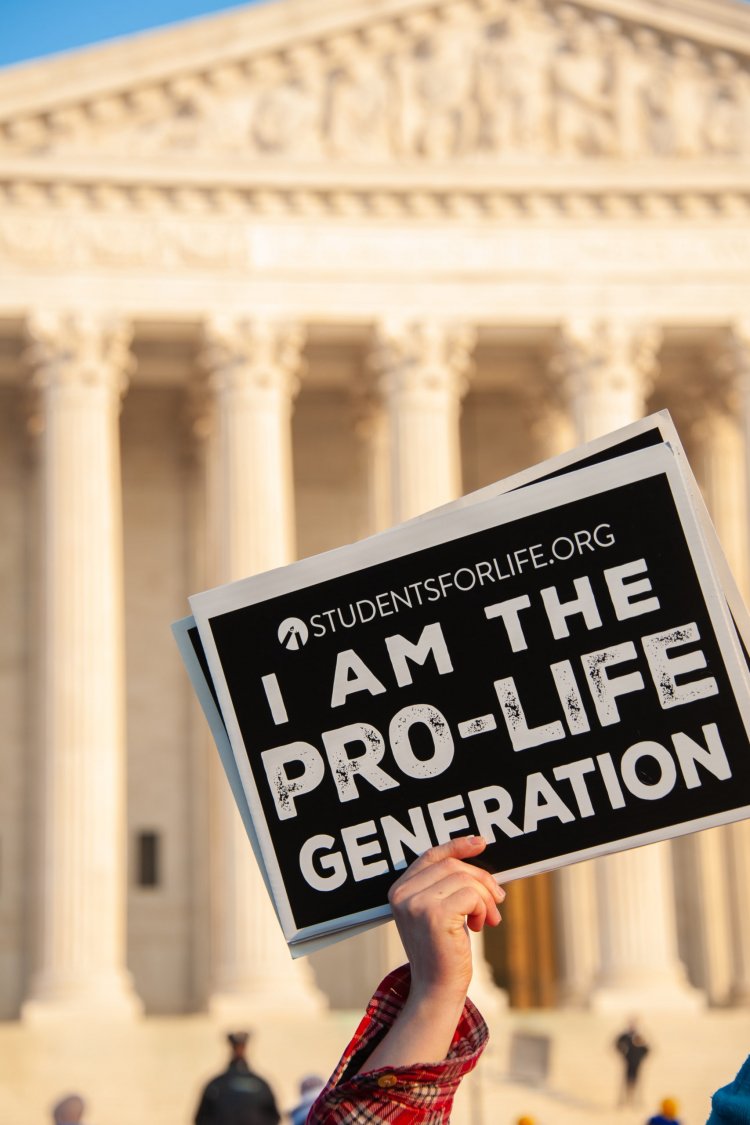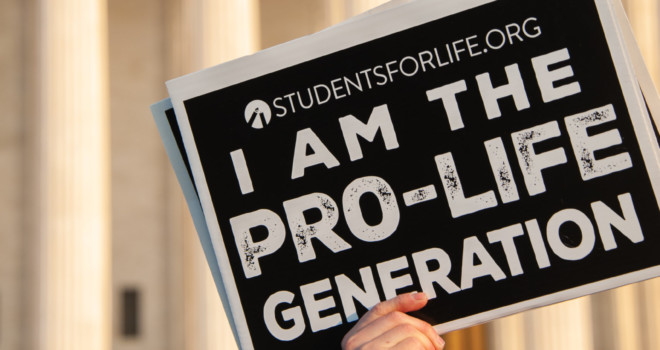If It’s a Question, Then You Must Be Pro-Life
Suppose there was a dilapidated apartment building in the middle of an otherwise vibrant and growing section of a town. Town leaders, as you can imagine, are eager to demolish the eyesore and make way for something of more value to the community – a park or a library. As demolition plans are made, someone […]



Suppose there was a dilapidated apartment building in the middle of an otherwise vibrant and growing section of a town. Town leaders, as you can imagine, are eager to demolish the eyesore and make way for something of more value to the community – a park or a library. As demolition plans are made, someone comes forward with a credible claim that the building, long thought to be abandoned, is the home to a seldom-seen family, although the informant is not certain. At this point, demolition is only days away. The town leaders’ options are straightforward: ignore the tip and continue with demolition, or investigate the claim before proceeding.
The right moral choice in this scenario is obvious – investigate the claim about the recluse family first. Why? It almost doesn’t need an explanation to the average reader. The presence of people within that building, long thought to be resolved, has been challenged. There is no longer certainty one way or the other – the building may be empty, or it may not be, and an investigation is the only way to confirm. The moral clarity in this question is telling. Only once an investigation has unequivocally confirmed the absence of human presence in the building can demolition begin. This comes despite the temporal setback to the community writ large.
I offer this vignette in the wake of the Supreme Court’s landmark decision to overturn Roe v. Wade, refuting the claim that the US Constitution offers a right to abortion. However, I offer it particularly to challenge a common claim in favor of abortion rights. As you may recall, when the anti-Roe draft decision was leaked in May, President Biden spoke to reporters. As he decried the draft opinion and condemned its legal reasoning, he also ventured into a commentary on when life begins:
“Roe says what all basic mainstream individuals have historically concluded, that the existence of a human life and being is a question. Is it at the moment of conception? Is it 6 months? Is it 6 weeks? Is it quickening, like Aquinas argued?”
This remark reminded me of a similar comment given by then Presidential Candidate and Senator Barack Obama leading up to the 2008 election. When asked by Pastor Rick Warren at what point a baby gets human rights, Senator Obama said:
“I think that if you’re looking at it from a theological perspective or a scientific perspective, answering that question, with specificity, is above my pay grade.”
Both pro-choice and pro-life advocates would agree on the following two premises without quarrel. One, that there is no life pre-conception, and two, that killing born babies in a hospital NICU would be a horrific act of murder. The question, therefore, lies in at what point along the baby’s journey from pre-conception to the NICU does an act against its life count as a horrific murder. Acknowledging the difficulty in drawing that line, both President Biden and Senator Obama offer reasonings along the same vein to justify their pro-choice stances. Namely, the question as to when life begins is complex; therefore, the government should not interfere in that question, restricting government penalty should a woman and her medical team decide to terminate a pregnancy. Since the government refrains from answering the question as to when life begins, it refrains from any sort of prosecution.
On its face, it seems to make a lot of sense. The logic laid out in the preceding paragraph reads easily and appears reasonable, appropriate, and moderate. I would venture that the contentiousness of the fundamental question at the heart of the abortion debate, namely, when life begins and is worthy of government-backed protection, is foundational for pro-choice advocates. They would say that their position accounts for the diversity of voices surrounding that question, and they rest easily knowing that they are wisely restraining government prosecution where it need not be.
However, as moderate, and reasonable as it may seem, that position is the most barbaric. If you accept the comments made by President Biden and Senator Obama, that we can never truly ascertain the moment when an unborn baby is morally entitled to the same government-backed protection that born humans enjoy, then the only morally correct choice is to resist abortion at all costs. For if you acknowledge that it is a question, then one thing that you have failed to do is rule out the existence of an innocent human being in the womb. By accepting the seemingly safe option that it is a “question,” you are admitting that you don’t know that a fetus is not an innocent human life. And, if you are not completely certain, you must err on the side of treating it as if it were a human life, worthy of legal barriers against its destruction. To be pro-choice, while maintaining an uncertainty about the point when pre-born life begins, is equivalent to saying, “Well, yes, it could be an individual person. In fact, the most innocent of persons. I’m not quite sure. Still, I shouldn’t stop you from killing it.” The possibility of human life is still on the table. And, if that reality is on the table, to be in favor of a procedure that would destroy that life is morally unjustifiable.
I call back to the opening vignette of the town leaders and the possibility of a recluse family tucked away inside the dilapidated apartment building. In that instance, the moral decision was clear – you settle the question of life before you tolerate the building’s destruction. The same rule applies to the abortion debate. If to you, just like President Biden and Senator Obama, the beginning of human life is a question, then you must be pro-life.
✠














